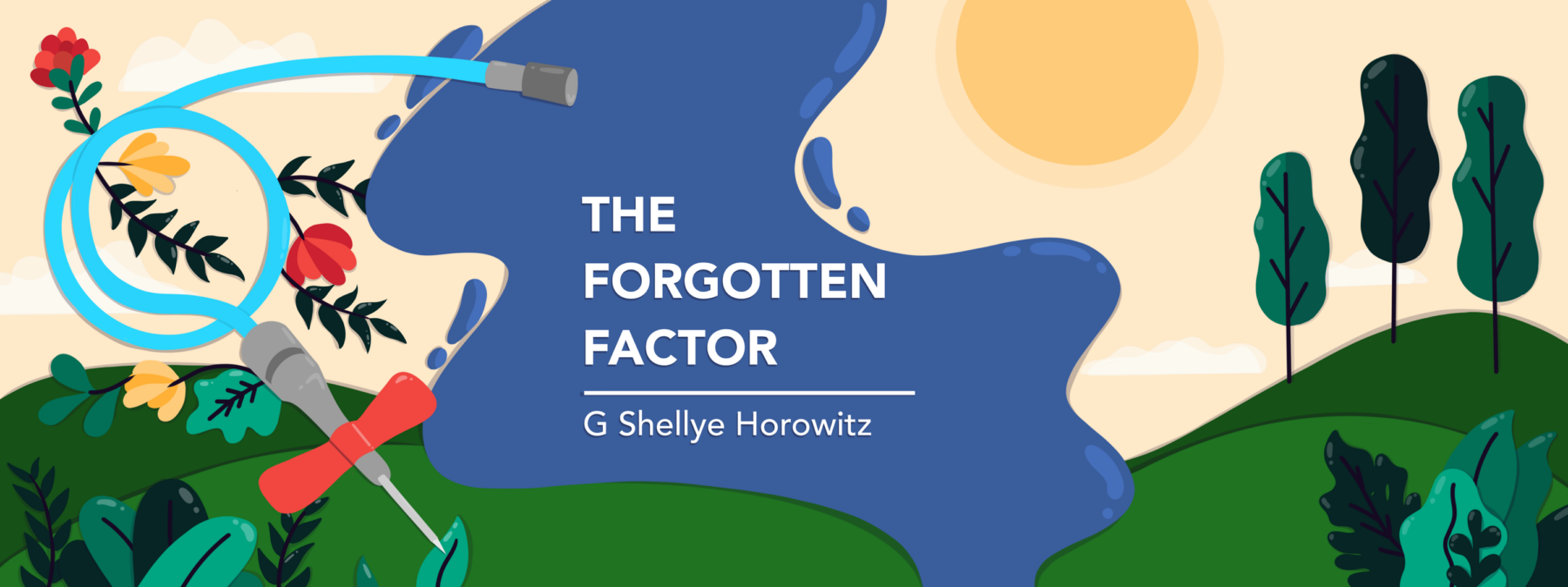A ham radio license makes me feel safer as someone with hemophilia
Having reliable communication and connection puts my mind at ease

“Whiskey-Bravo-six-Zulu-Yankee-Yankee looking for a radio check,” my dad called out into his faithful Kenwood handheld 2-meter radio.
“W-B-6-Zed-Y-Y, I hear you loud and clear,” came an answer from radio land.
This was my dad’s call sign — the constant background noise of my youth. Ask any childhood friend who spent extended time at my home; Dad’s call sign is ingrained in their memories, too. It was a comfort to hear it.
My father didn’t go anywhere without his amateur (ham) radio. As a person with severe hemophilia, he felt safer knowing he had a way to communicate in an emergency. That was long before cellphones existed.
I have multiple memories of our vehicle breaking down on the highway. While other stranded motorists would have to hike to the nearest call box to reach out for help, my father would call out on his radio and a listener would hear. Then, they called for a tow truck using their landline. Sometimes they’d even hop in their car to come rescue our family and take us home.
The radio proved useful, allowing Dad to communicate with others, even when he was away from his landline, and keep our family safe.
Ham radio as connection
My dad didn’t start using ham radio as a safety measure, but as a means of connection. As a teenager growing up on the Hawaiian island of Oahu, he was lonely and struggled at times to make friends. Additionally, bleeds could cause him to miss school for extended periods of time. (Thankfully, hemophilia treatments are much better today!) Sports were definitely not an option for him.
In high school, he became interested in radio and was soon licensed and talking to people all over the world. This afforded him much-needed connection while living with such an isolating condition.
Ham radio was a hobby he would carry throughout his life. When I was in high school, my dad encouraged me to get licensed, too. He argued that a license would allow me to carry a radio with me when I drove, affording me similar safety in an emergency.
At 15, I studied and passed the test for the first level of license at the time (Novice). I had to learn Morse code! Unfortunately, I didn’t pass the licensing exam for the next level, Technician, which would’ve allowed me to talk on certain radio bands. I failed by only one or two questions, but embarrassed and frustrated, I walked away. My dad and I didn’t talk much about ham radio after that.
Dad died in September 2010. His radios were with him until the end.
Obtaining my license
In December 2021, I saw someone advertising a ham radio licensing class online. It made me curious about amateur radio, so I read about it — for hours. I learned I could apply to obtain my father’s call sign as my own if I were to study and pass the Technician test I’d failed 33 years earlier. This was on a Friday. By Saturday night, I’d found an online program I could use to cram the information necessary to pass the licensing exam.
I locked myself in a room for two days straight. On Tuesday, I took the Technician test online. I redeemed my 15-year-old self with a score of 100% and applied for my dad’s old call sign immediately. He would be proud.
But I didn’t stop there. The following weekend I crammed again, and I passed the General licensing test the next Tuesday. One year later, a friend sent me study guides for the Amateur Extra license test. With that pressure, I crammed over another weekend and passed the highest licensing exam. I wish my dad could have seen me achieve this.
Today I feel safer knowing I have a ham radio license. I live in California, where there are earthquakes, floods, and fires. During natural disasters, communication is challenging, as cellphone towers can go down or get overloaded. Ham radio towers enable me to keep an open line of communication. Today I serve on the radio team for the Community Emergency Response Team, a program that educates, trains, and certifies volunteers to serve the community during disasters.
When I first spoke on the radio, I fought back tears; it was hard to speak my dad’s call sign as my own. I missed him. Three and a half years later, his call sign now feels like mine. I use it with pride, threading together two generations of hemophiliacs with stable communication and connection.
Note: Hemophilia News Today is strictly a news and information website about the disease. It does not provide medical advice, diagnosis, or treatment. This content is not intended to be a substitute for professional medical advice, diagnosis, or treatment. Always seek the advice of your physician or another qualified health provider with any questions you may have regarding a medical condition. Never disregard professional medical advice or delay in seeking it because of something you have read on this website. The opinions expressed in this column are not those of Hemophilia News Today or its parent company, Bionews, and are intended to spark discussion about issues pertaining to hemophilia.







Leave a comment
Fill in the required fields to post. Your email address will not be published.